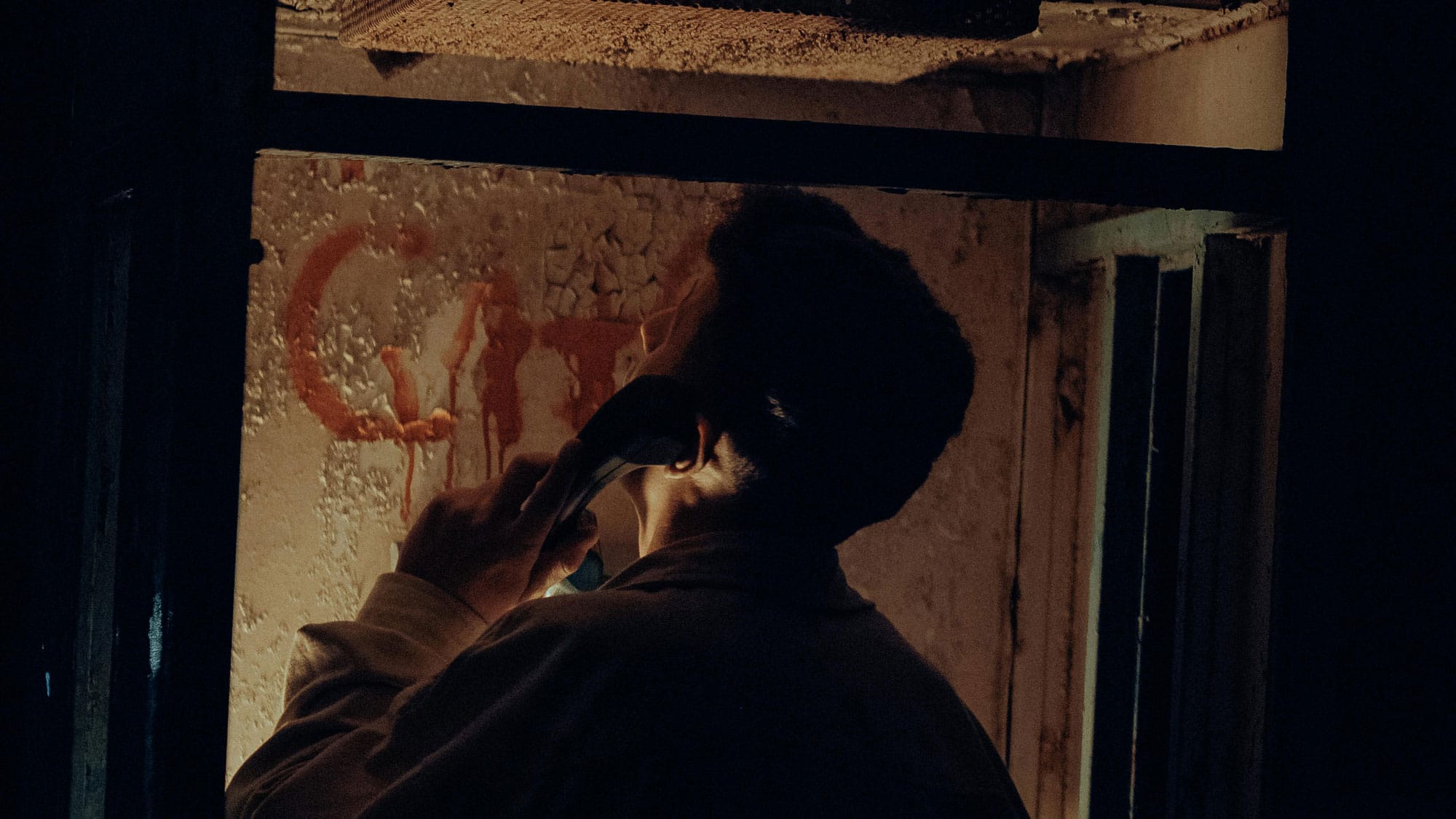Payphone at the Corner of Gordon and Gone
When the world kept quarters — and secrets — in its pockets

The box is empty, but it still says “Phone” in letters that once glowed white against an evening sky. The handset is long gone, the cradle scarred. A single frayed wire dangles from the metal belly like a blood vessel cut mid-operation. On the far side of the intersection the street sign reads Gordon St. and nothing more, as if the city had quietly erased every other direction. I found the booth at dusk, almost by accident, and pressed the shutter before the light collapsed. Only later did I realize I’d photographed an obituary.
It wasn’t always a relic. There was a time when this payphone — one of hundreds in Dallas — stood ready for night owls and lost tourists, teenagers pooling coins for curfew excuses, strangers dialing numbers scribbled on napkins. A nickel, a dime, a quarter: small tributaries feeding the great river of human voice. Now it faces a silent curb, conspicuous for what it lacks. No receiver. No dial tone. Not even the faint smell of copper and dirt that once lingered on the cord.
I wondered which emptiness weighed more: a pocket without change, or a day without pause.
We’ve grown used to the ghost towns technology leaves behind. Think of cassette recorders, CRT televisions, the soft glow of a motel vacancy sign in the middle of nowhere. The objects vanish, but the habits they housed take longer to fade. A payphone was never just hardware; it was a promise of connection with boundaries. You had to leave your house, step into weather, feel the metal chill of the handset. You entered a transparent booth, half public, half private — visible to passers-by yet enclosed enough to mutter or weep without recording devices waiting to hoard your grief. The conversation ended when the quarters ran out or the line went dead. There was mercy in that final click.
Now the phone is gone, yet the form remains: a mute kiosk guarding memories of urgent calls and whispered confessions. I imagine a traveler fifty years from now, stumbling across this box in an archive photo, puzzling over the word Phone the way we puzzle over telegraphs and milk chutes. What did it do? Why was it on the street? They will not remember the choreography: coins from pocket to slot, finger to metal keypad, the whir of connection, a voice arriving like an unexpected train.
The absence of payphones tells a larger story. Cell phones arrived bearing convenience, but also a new kind of tyranny: perpetual reachability. You can dodge a call, of course—send it to voicemail, shunt it to text — but you must perform the dodge. Silence is no longer passive; it’s a decision. In the era of payphones, silence was built in. You left your house and the phone stayed behind, ringing unanswered in an empty room like a dog barking at the moon. The world tolerated your absence. Today, absence is an error code, a dropped pin, a reason to worry.
I find myself missing that earlier rhythm: waiting by the receiver for good news, planning a stop at the corner booth if my car broke down, rehearsing messages to fit the finite breath of an answering machine. Time moved differently then. It loafed, it sauntered. You could finish a thought before it buzzed for attention. There was space between wanting to say something and being able to say it — a liminal pause where the desire either grew deeper or gently died. Most of our present urgency would not survive such a pause. That seems worth mourning.
Yet mourning alone is too easy; nostalgia must serve a purpose beyond sentiment. A defunct payphone can remind us of what we carried lightly — anonymity, patience, the modesty of calling only when it mattered. Those qualities still belong to us, if we are willing to keep them alive inside new tools. A smartphone can be set to do-not-disturb; a voicemail can be postponed until morning. The trick is remembering that we do have a choice. The phone booth once stood as a threshold, and thresholds can be rebuilt in the mind.
I keep returning to the photograph because its composition feels like a freeze-frame from a noir film. The black box leans slightly forward, a conspirator in shadows. Across the darkened street the houses stare back, windows unlit. Every element conspires to suggest end-of-broadcast hours, a city turned inward. It is not a scene of progress but of residue, like a campfire’s dying glow. Yet within that residue lies a peculiar peace. Nothing clamors. No ringtones, no pings. No push notification to fracture the sky.
Sometimes I fantasize about reinstalling a working receiver, just to hear the click and hum again. I picture myself feeding in a quarter, punching an old friend’s number, letting it ring. When they answer, I’d say nothing. Not a prank. A gesture. A handshake across time. Remember this sound? The world once paused for it. Then I’d hang up, leave the handset swinging, and walk away.
That fantasy reveals something deeper: the desire to bring certain slownesses forward rather than abandoning them on obsolete sidewalks. Our parents kept civility alive by lifting a hat, writing a letter, waiting their turn; they did not grow bored in lines because they had cultivated the interior conversation. We can do the same. We can rescue silence from extinction, import it into the present like an heirloom seed. The payphone may stay empty, but the practice it fostered—deliberate, finite connection—can sprout again in newer soil.
Technology will always march, but we decide what memories ride on its shoulders. We decide what small courtesies and unhurried breaths sneak through its gates. The payphone at Gordon and Gone cannot be resurrected, yet its hollow shell still instructs: Choose when to speak, choose when to disappear, leave room for quiet. I heed that lesson when I turn the phone face-down, let the world go unanswered, and listen to the hum that remains—part electrical, part human, part remembered.
I left the corner as the streetlights flickered on, the booth receding into blue twilight. A car passed, its driver glowing in LED light, thumb pirouetting across glass. Somewhere a message came and went at the speed of photons. I thought of pockets once heavy with quarters, now occupied by silent rectangles pretending to be everything at once. I wondered which emptiness weighed more: a pocket without change, or a day without pause.
Back in the darkroom — digital, though I keep the term for romance — I deepened the shadows, leaned into the noir. The word Phone shines brighter than the streetlamp, a beacon of what once was ordinary and is now rare. When I print the image, I leave a wide white border, like the margin of a letter. It reminds me that some messages deserve space around them, air to breathe.
We will not bring back payphones. The infrastructure is gone, the culture too. But we can bring forward the practice of stepping outside our orbit long enough to taste the night air and hold a conversation we can't quite schedule. We can remember the weight of a receiver, how it grounded the voice, gave it resonance. We can learn again to let silence ring.
— Lawrence

Thanks for reading Still Stories! Subscribe for free to receive new posts and support my work.

